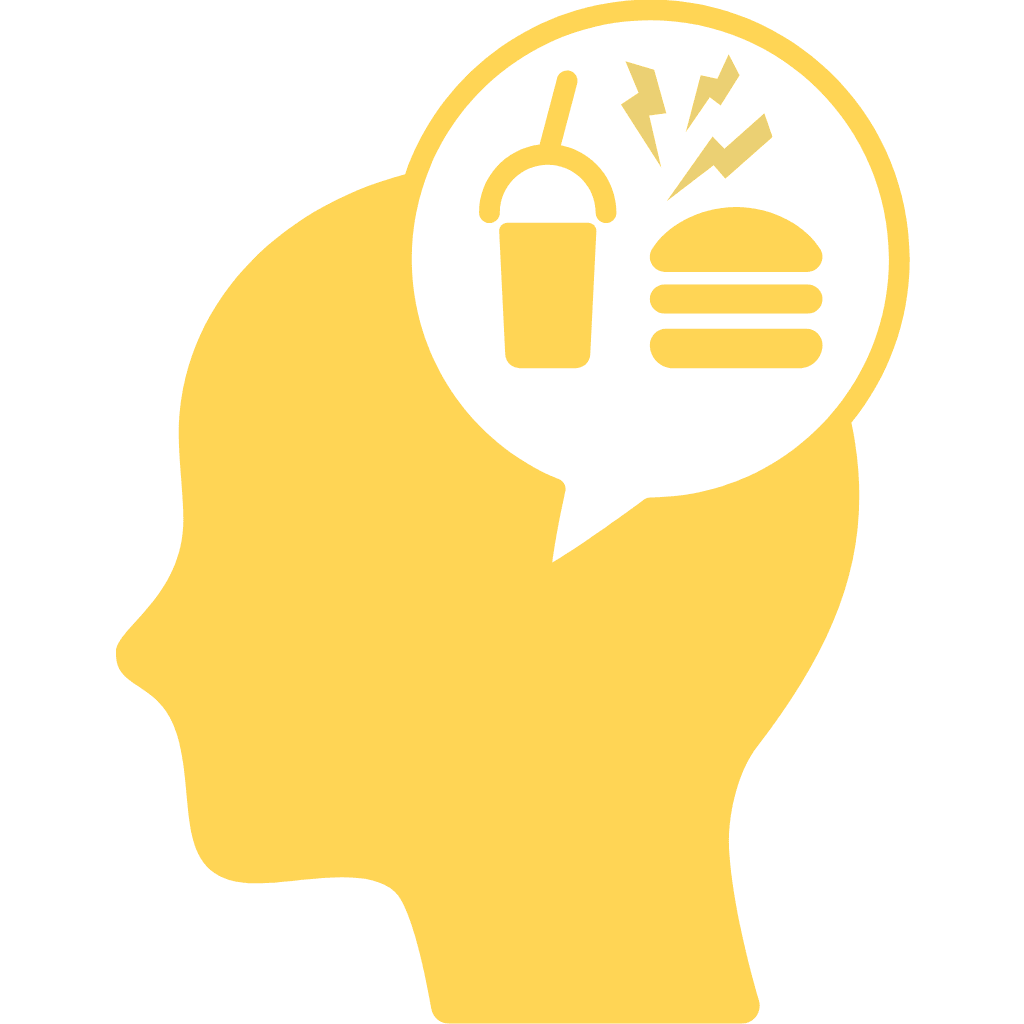Intuitive Eating Doesn't Work: Uncovering When Intuitive Eating Doesn't Work and What You Can Do About It!
Intuitive Eating Doesn't Work: Uncovering When Intuitive Eating Doesn't Work and What You Can Do About It!

May 16, 2023
Stefanie M. Lawson, MSW LCSW
The Mindfulness Space Psychotherapy Services, PLLC
“Intuitive eating doesn’t work!”
As a therapist who specializes in eating disorders that includes Binge Eating Disorder, I often come across clients who struggle with intuitive eating. They genuinely try to listen to their body’s signals, find alternative ways to cope with emotions, and follow all of the recommended steps (Principles of Intuitive Eating); Yet, they feel like they’re hitting a roadblock.
So, what could be going on? Let’s explore the possible reasons behind this and discuss how therapy can help you to manage compulsive, uncontrollable binge eating a bit better and regain control back over your life!
What is Intuitive Eating?
Intuitive eating is an approach to eating that involves listening to your body’s internal signals of hunger and fullness and making food choices based on these internal cues rather than external factors that are driven by stress and unpleasant feelings or emotions that may lead to binge eating.
1. Hormonal and Endocrine Factors:
When intuitive eating doesn’t seem effective, it’s essential to consider potential hormonal or endocrine issues that might affect appetite regulation. It’s crucial for clients to consult with a healthcare provider to rule out any underlying medical conditions that could be contributing to their struggles.
Certain hormones, like ghrelin, stimulate hunger. They’re like little messengers telling our brain, “Hey, it’s time to eat!” Leptin, also known as the “satiety hormone,” is produced by our fat cells and acts as a key regulator of appetite. It sends signals to the brain, specifically the hypothalamus, to reduce hunger and increase feelings of fullness. As you can imagine, when there’s an imbalance or dysregulation of these hormones, it can lead to heightened hunger levels and cravings that are difficult to control, or vice versa.
2. The Impact of Food Restriction:
Another factor to consider is whether the client has been restricting their food intake at any point during the day. Restrictive eating patterns can trigger hormones like ghrelin, which stimulate hunger. When our brains sense that we may be experiencing a famine, gherlin levels in our bodies are increased, and hunger and cravings feel insatiable. It’s like an internal alarm blaring, demanding food. And in an attempt to satisfy these heightened hunger levels, we may find ourselves overeating or even bingeing on usually very high calorie, nutrient dense foods. If this is the case, finding a balanced approach to nourishment becomes vital.
3. Dysregulated Nervous System:
If medical concerns and food restriction are ruled out, a dysregulated nervous system could be at the root of the problem. Binge Eating Disorder can often be associated with stress, whether stemming from unaddressed past trauma or triggered by everyday life stressors. I’ve previously discussed
@themindfulnessspace What happens when intuitive eating does not work?!!! As a therapist who specializes in binge eating, I often hear that intuitive eating isn't helpful. So, what's going on? Let's dive in!💭 Clients often tell me that they’re trying their best to listen to their body’s internal hunger and fullness signals! They’re say that they’re trying to cope with emotions without using food! They’re doing all the steps, but nothings seems to be working! 😫😫😫 This situation is all too common, and it usually lets me know a few things! 👉🏽 Watch the video to learn more! Plus, check out my blog post in the link in bio to learn more evidenced based tips and tools or how The Mindfulness Space can help! 💛🛋️🙋🏾♀️. ##therapy##IntuitiveEating##emotionaleatingexpert##emotionaleatingcoach##licensedtherapist ♬ Bounce When She Walk - Ohboyprince

exposure to stress or trauma initiates our body’s sympathetic nervous system or “Fight/Flight/Freeze” response. This is our body’s natural reaction to increased anxiety, distress or trauma. Over time, individuals who experience binge eating may have learned to rely on food as a means to regulate their body’s nervous system response during periods of distress.
4. Dissociation and Emotional Escape:
Another sign of exposure to trauma or prolonged distress is dissociation.
Experiencing dissociative responses following traumatic, or extremely stressful events is thought to be our brain’s way of coping with overwhelming experiences by detaching from their thoughts, emotions, or even our own sense of identity, and serving as a temporary escape, providing a mental refuge.
So, what does this have to do with binge eating?
Research suggests that binge eating often occurs when individuals enter a dissociative state, becoming disconnected from their thoughts and emotions. Food becomes a mental escape, providing temporary relief from increased distress or unpleasant emotions.
Breaking this cycle requires engaging in therapy to begin understanding how trauma or prolonged stress impacts our relationship with food, and heal from our past trauma.

5. The Journey to Change:
It’s important to recognize that change doesn’t happen overnight. For many people who experience binge eating, the use of food as a means to regulate the dysfunctional nervous system has been ingrained for years, becoming second nature. Overcoming binge eating often requires working with a therapist who specializes in this area. Therapists can guide clients in reconnecting with their bodies through mindfulness practice and somatic therapy. In addition, clients learn how to regulate their emotions without using food as their default method.
6. Consistent Practice and Support:
While therapy plays a significant role in recovery, it’s crucial to understand that progress extends beyond the therapy session. Clients need to actively engage in consistent practice, learning new behaviors and reinforcing new ways of regulating distressful emotions. This involves incorporating mindfulness techniques, building emotional resilience, and exploring alternative coping mechanisms.
Conclusion:
If intuitive eating alone isn’t enough, don’t lose hope. Understanding the various factors contributing to binge eating, such as hormonal imbalances, food restriction, and a dysregulated nervous system, is key to overcoming this challenge. Working with a therapist provides valuable support in relearning how to connect with your body, regulate emotions, and establish healthier coping mechanisms. Remember, change takes time, effort, and consistent practice. You’re not alone on this journey, and recovery is possible!

Do you Struggle with Uncontrollable Binge or Emotional Eating?
If you are struggling with uncontrollable emotional or binge eating, it’s important to seek help from a licensed therapist or healthcare provider. Stefanie Lawson is a licensed therapist and owner of The Mindfulness Space therapy in Greensboro North Carolina.
Stefanie maintains specialized education and training in treating the underlying depression, anxiety, stress or unresolved trauma that often leads to eating disorders and issues concerning body image dissatisfaction (i.e. Body Dysmorphic Disorder) in adults and transitional aged teens (older teenagers who are transitioning into adulthood).
Schedule your free 30 minute call with The Mindfulness Space today to learn more about how Stefanie can help you!
Still want to learn more? Read: Impulsive Over Eating: The ADHD/ Binge Eating Connection and Cracking the Code: How Behavior Chain Analysis Can Help You Overcome Binge Eating and HAES Informed Psychotherapy and Intuitive Eating Informed Skills Training in Greensboro North Carolin
Your Next Step...
Take your next step with The Mindfulness Space!
Schedule your free 30 minute consultation today!
Sign up for our Newsletter!
Are you a provider? Join the email list to sign up for our newsletter today! By signing up, you agree to join The Mindfulness Space’s email list and receive periodic communication with us via newsletter. (See website privacy and terms of use here.) Don’t worry, we won’t spam your inbox! Sign up today! Sign up here!


